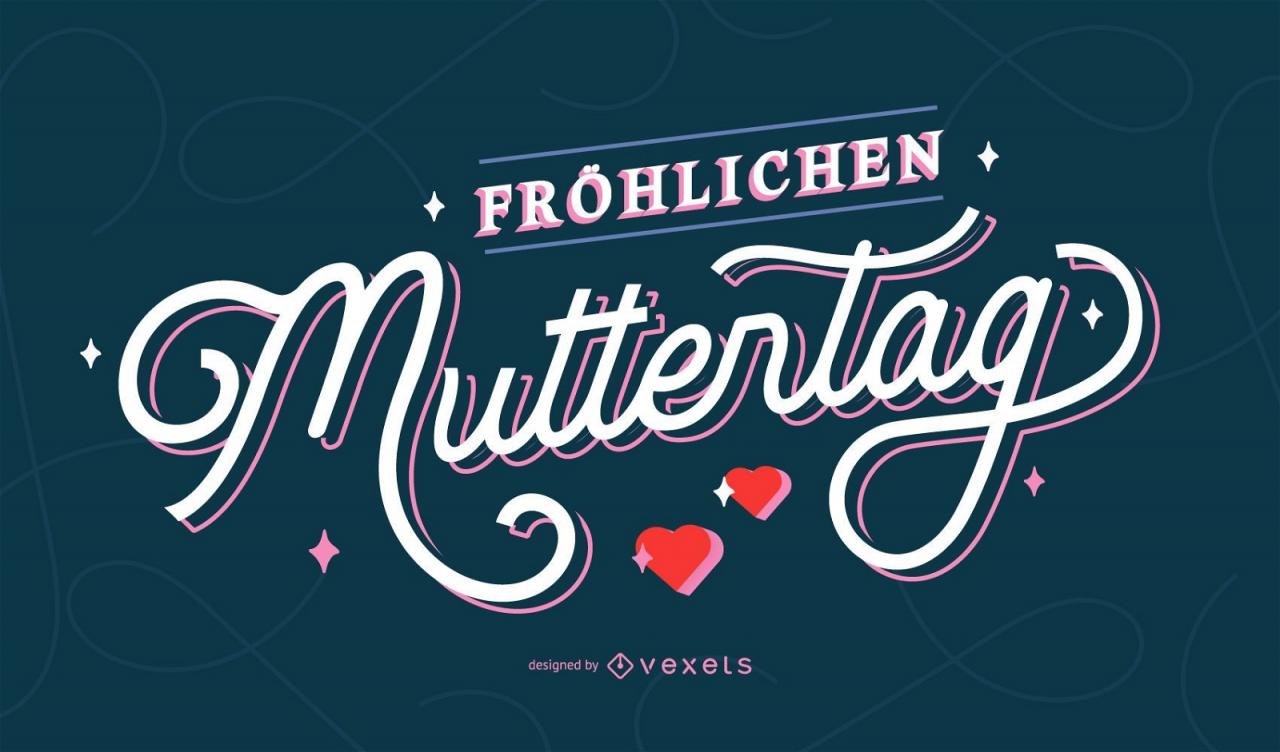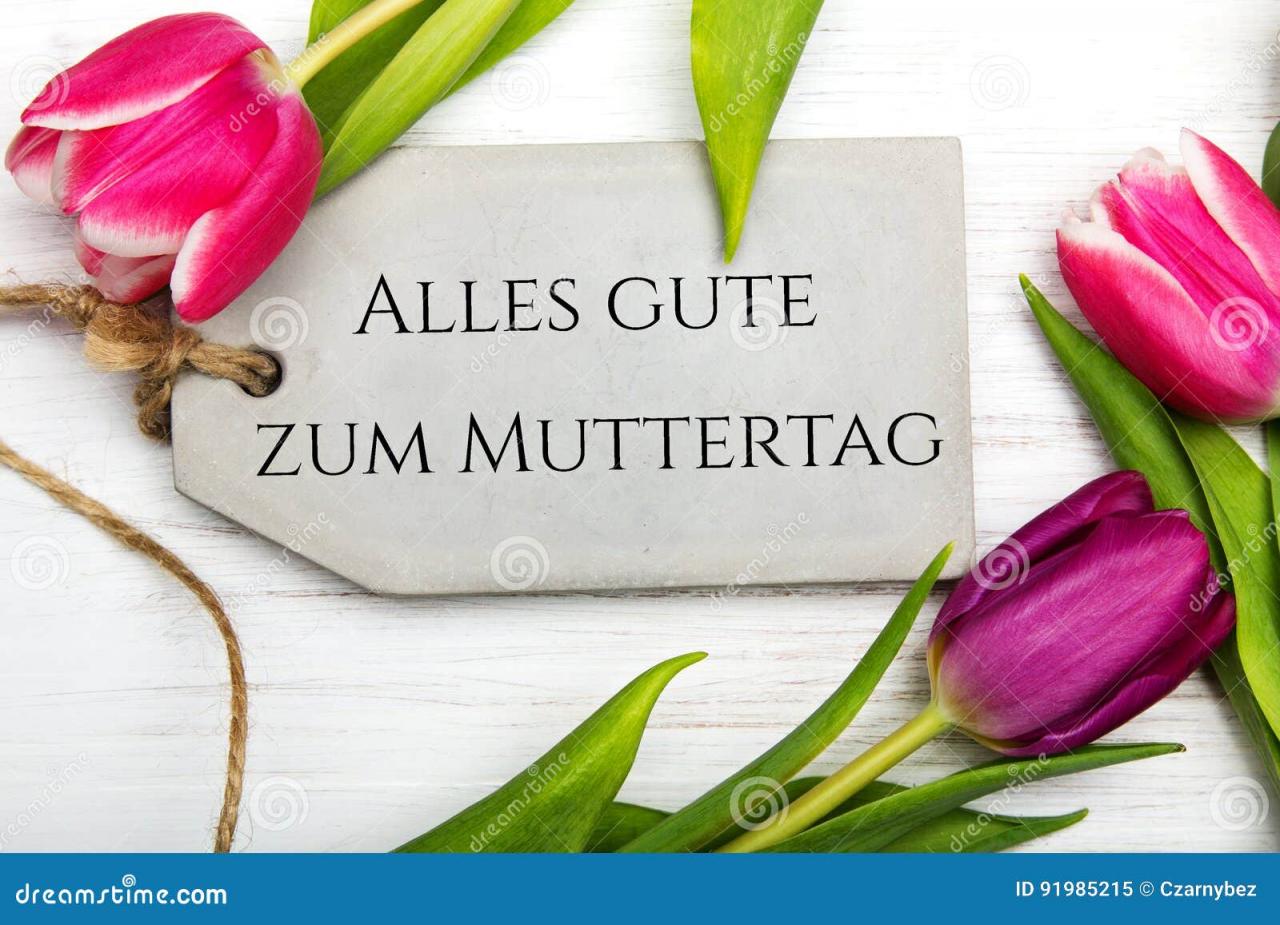
Happy Mother’s Day in German, known as Muttertag, is a cherished celebration that honors the extraordinary bond between mothers and their children. This heartfelt occasion is deeply rooted in German culture, with traditions and customs that have evolved over centuries.
The Milwaukee Bucks’ injury report has revealed a string of key players out of action, raising concerns about the team’s performance and future success. As detailed in Bucks Injury Report Impact on Team Performance and Future Success , the Bucks have been hit by injuries to Khris Middleton, Jrue Holiday, and Brook Lopez, among others.
The report assesses the potential roster moves the team may consider to address these absences.
Mother’s Day in Germany is a day to express love, appreciation, and gratitude for the unwavering support and sacrifices that mothers make throughout their lives. Families and communities come together to celebrate with special meals, thoughtful gifts, and heartfelt gestures.
Introduction
Mother’s Day in Germany is a widely celebrated holiday that holds great significance and cultural importance. It is a day dedicated to honoring and expressing appreciation for mothers and their invaluable contributions to families and society.
The celebration of Mother’s Day in Germany has deep-rooted historical origins and has evolved over time to become a cherished tradition that brings families and communities together.
Historical Origins
The origins of Mother’s Day in Germany can be traced back to the early 1900s. In 1907, Anna Jarvis, an American woman, initiated a campaign to establish a national day to honor mothers. Her efforts resonated with many people around the world, including Germany.
In 1923, the first official Mother’s Day celebration was held in Germany. The date of the celebration was chosen to coincide with the Catholic feast day of the Virgin Mary, which is observed on the second Sunday in May.
Traditions and Customs
Mother’s Day in Germany is a day filled with traditions and customs that have been passed down through generations. Families typically gather for special meals, often featuring traditional dishes such as asparagus soup and rouladen (beef rolls).
Children often make handmade gifts or cards for their mothers, expressing their love and appreciation. Flowers, particularly carnations, are also a popular gift on Mother’s Day.
In other news, Tyrese Haliburton’s rise from Iowa State star to NBA All-Star has been nothing short of remarkable. Tyrese Haliburton From Iowa State Star to NBA All-Star charts his journey, highlighting his impressive performances and the impact he has had on his team, the Indiana Pacers.
Gift-Giving and Symbolism

Gift-giving is an integral part of Mother’s Day celebrations in Germany. Gifts are often chosen with great care and thought, reflecting the unique bond between mothers and their children.
Carnations are the traditional flower associated with Mother’s Day in Germany. Red carnations symbolize love and gratitude, while white carnations represent remembrance for mothers who have passed away.
Popular Phrases and Greetings
On Mother’s Day in Germany, it is customary to express appreciation for mothers using specific phrases and greetings.
- Zum Muttertag!(Happy Mother’s Day!)
- Alles Liebe zum Muttertag!(With all my love on Mother’s Day!)
- Ich danke dir, Mama!(Thank you, Mom!)
Modern-Day Celebrations

While the core traditions of Mother’s Day in Germany remain largely unchanged, there have been some adaptations in modern times.
For example, many families now choose to celebrate Mother’s Day with activities such as brunch, spa days, or weekend getaways. However, the emphasis on family, appreciation, and expressing love remains at the heart of the celebration.
Comparative Analysis

Mother’s Day is celebrated in many countries around the world, but there are some notable differences in traditions and customs.
In Germany, Mother’s Day is typically a more family-oriented celebration, with a focus on spending quality time together and expressing gratitude. In contrast, in some other countries, such as the United States, Mother’s Day is often celebrated with more elaborate gifts and activities.
Beyond his own music, Jon Bon Jovi is also an avid fan of other artists. In an interview, he revealed his favorite music includes Bruce Springsteen, Bob Dylan, and the Beatles. Jon Bon Jovi’s Favorite Music provides a glimpse into the influences that have shaped his own sound.
Cultural Impact
Mother’s Day in Germany has a significant cultural impact, reflecting the importance of family and the role of mothers in society.
Music icon Jon Bon Jovi has released some of the most memorable albums in rock history. His best-known works include “Slippery When Wet” and “Keep the Faith,” which have sold millions of copies worldwide.
The celebration reinforces the bond between mothers and their children and serves as a reminder of the love and sacrifices that mothers make for their families.
Conclusion
Mother’s Day in Germany remains a significant cultural event, reflecting the deep-seated values of family, love, and appreciation. It is a day that not only honors mothers but also strengthens the bonds between generations.
Questions and Answers: Happy Mother’s Day In German
When is Mother’s Day celebrated in Germany?
Mother’s Day in Germany is celebrated on the second Sunday in May.
What are some traditional Mother’s Day gifts in Germany?
Popular Mother’s Day gifts in Germany include flowers, chocolates, jewelry, and personalized items.
What is the significance of carnations on Mother’s Day in Germany?
Carnations are associated with Mother’s Day in Germany, with red carnations symbolizing love and gratitude, and white carnations representing remembrance.




